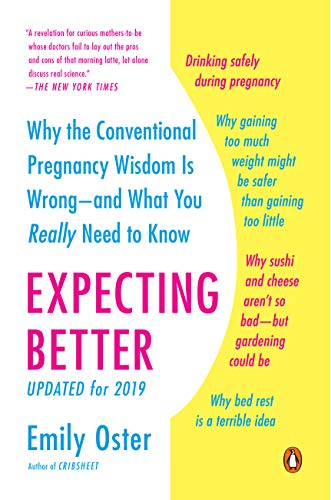

This article is an excerpt from the Shortform summary of "Expecting Better" by Emily Oster. Shortform has the world's best summaries of books you should be reading.
Like this article? Sign up for a free trial here .
The medications you take while pregnant can affect your baby’s health. The baby is exposed to most drugs the mother takes, except for large molecules (e.g. heparin) and drugs that get stuck in the placenta (e.g. buprenorphine).
So what medicine can pregnant women take, and what should they avoid? Learn the five categories of safety here.
Drug safety is hard to test in pregnant mothers because of ethical concerns – if there is risk of damage, then exposing a fraction of mothers to a drug seems unspeakable. Furthermore, medicine has a traumatic memory from the use of anti-nausea drug thalidomide in the 1950s, leading to thousands of infants with birth defects and thousands of deaths.
Therefore, many drugs that are probably safe for pregnant women don’t get an explicit clearance from the FDA.
The FDA classifies drugs into five categories (A B C D X), based on strength of evidence on safety:
Medication During Pregnancy: Category A
- Definition: Well-controlled human studies show no risk to fetus in any trimester.
- Examples
- Folic acid
- Levothyroxine (hypothyroidism)
Medication During Pregnancy: Category B
- Definition: No well-controlled human studies and animal studies have shown no risk to a fetus, OR animal studies show risk but well-controlled human studies show no risk.
- Includes common substances that are unethical to experiment with by withholding from a control group, like vitamins.
- Examples:
- Macrobid/nitrofurantoin (antibiotic)
- Amoxicillin (antibiotic)
- Metformin (diabetes)
- Tylenol/acetaminophen
- Claritin
- Benadryl
- Pepcid AC (heartburn)
Medication During Pregnancy: Category C
- Definition: No well-controlled human studies. Either animal studies have shown problems for the fetus, OR there have been no animal studies.
- The broadest category – includes both drugs that show no problems in small animal and human studies, and drugs that show damage in animal studies.
- Examples:
- Ciprofloxacin (antibiotic)
- Gabapentin (epilepsy, nerve pain)
- Vicodin/hydrocodone (pain)
- Ambien (insomnia)
- Prilosec (heartburn)
- Ibuprofen (pain)
Medication During Pregnancy: Category D
- Definition: Evidence of harm to fetus in human studies, but benefits may outweigh risks in certain situations.
- Once a drug falls in this bucket, it’s hard to get out given how difficult it is to prescribe and get new studies.
- Examples:
- Paxil/paroxetine (depression)
- Lorazepam (anxiety)
- Prinivil/lisinopril (hypertension)
- Tetracycline (antibiotic, acne)
- Aspirin
Medication During Pregnancy: Category X
- Definition: Should not be taken during pregnancy under any circumstances.
- Also includes drugs that have no purpose during pregnancy, like oral contraceptives
- Examples:
- Accutane/isotretinoin (acne)
- Leflunomide (arthritis)
- Warfarin (anticoagulant)
- Lipitor/atorvastatin, Zocor/simvastatin (high cholesterol)
- Finasteride (enlarged prostate)
———End of Preview———

Like what you just read? Read the rest of the world's best summary of "Expecting Better" at Shortform . Learn the book's critical concepts in 20 minutes or less .
Here's what you'll find in our full Expecting Better summary :
- Why much parenting advice you hear is confusing or nonsense
- The most reliable way to conceive successfully
- How much alcohol research shows you can drink safely while pregnant (it's more than zero)
- The best foods to eat, and what foods you really should avoid






